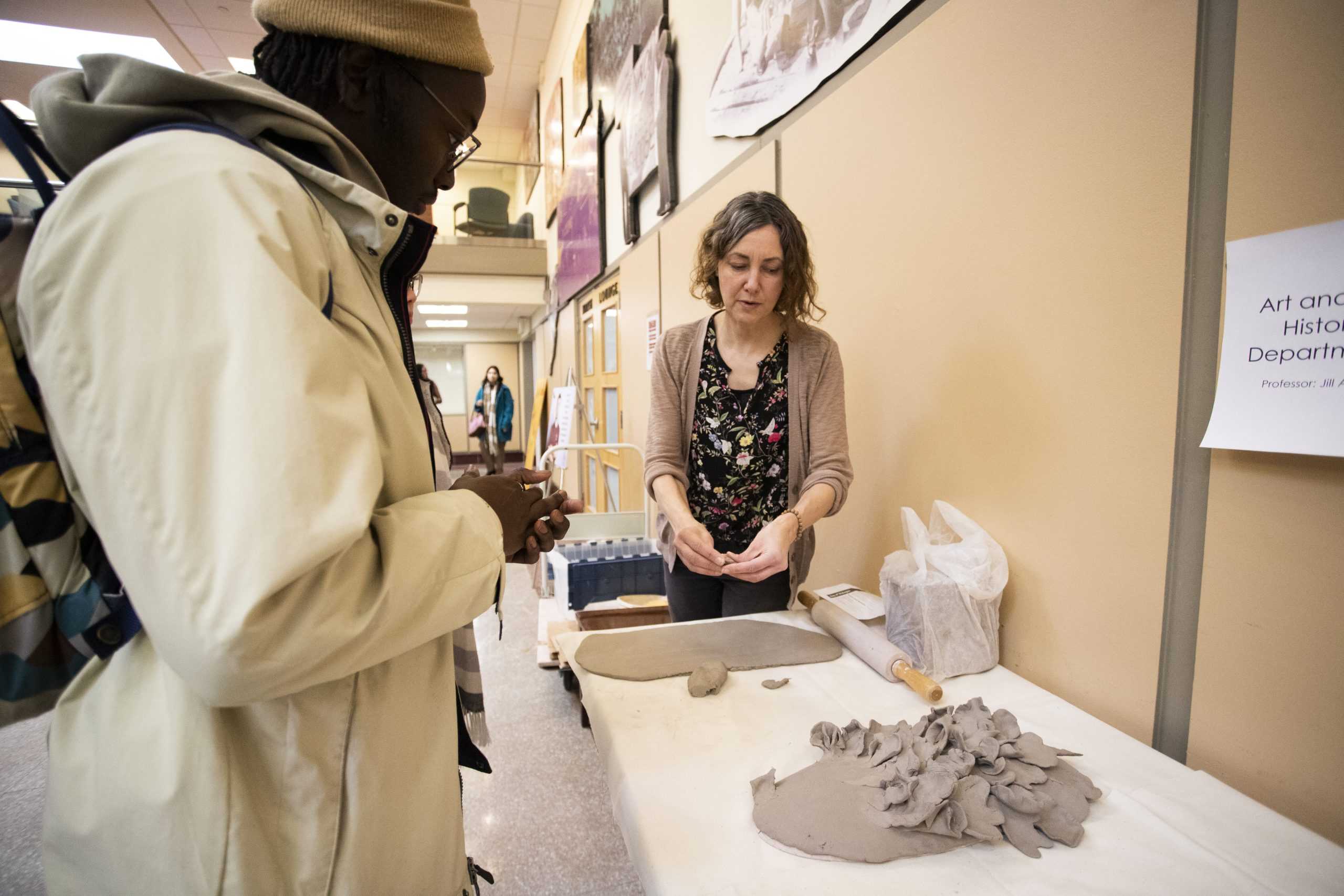Since St. Joe’s made the shift to virtual instruction, some professors have had to rethink their teaching methods to adapt nontraditional courses to the online platform.
Suzanne Sorkin, Ph.D., associate professor of music and chair of the music, theatre and film department, said in creating “instructional continuity plans” for her department, there were two main questions she discussed while adapting performing arts and film classes to the digital platform.
“What can we do in an online format that will be meaningful?” Sorkin said. “How can we make an online offering in the performing arts or in film that can still keep that sense of community that is so important to the department of music, theatre and film at Saint Joseph’s University?”
One way Sorkin has planned to achieve these goals in her courses is to move performances, such as the senior capstone recitals, online.
“Rather than canceling their senior recitals which they’ve worked so hard on, we’re going to have them live stream for the community,” Sorkin said. “The students can still have that experience of a senior capstone project, and the greater university community as well as the students’ friends and family can have an opportunity to still see that performance as well as hear it through live streaming.”
While some performance classes focus on individual lessons and recitals, others are based on ensemble work. Emiko Edwards, adjunct professor of music, said ensemble courses such as chamber music posed more of an “interesting quandary.”
“I have two students, a pianist and a violinist who have been working on repertoire together throughout the semester,” Edwards said in an email to The Hawk. “As part of the continuity plan they will be working on a piece by a composition major at SJU. He is actually using that piece as the music for a video game he and his brother are developing for their senior project.”
Edwards said the students will now work on their pieces separately and then dub them together electronically.
Catherine Hughes, Ph.D., visiting assistant professor, said she had to replace some performance aspects of her world music course. However, she has thought of an alternative way to get students to learn basic dance steps as she had originally planned: using the popular video app, Tik Tok.
“I’m considering a way to get Tik Tok dance challenges and things like that going so that folks still have the chance to do some performance,” Hughes said. “I might offer extra credit if folks who are staying with their families can get their whole family to do the dance.”
Despite the changes, Hughes said she feels hopeful for her students’ adjustment to the online shift.
“I think that they’ll still get a lot out of the classes if they’re willing to put in the effort, and St. Joe’s students are willing to put in the effort,” Hughes said. “It’s not that the second half of the semester is completely lost. It’s just in a different format.”
Similar to performing arts, visual arts courses have also seen changes.
Jill Allen, visiting assistant professor of ceramics, said she is “excited for all the possibilities” and has planned many alternatives to the typical studio art experience. Among her ideas is teaching her students how to dig their own clay.
“I’ll be explaining to them specifically where clay comes from, what it’s made from, as well as giving a presentation on digging your own clay,” Allen said. “I actually went out with my family this week and we found our own clay. It’s everywhere on the planet, it just involves taking the time to know what to look for and processing the material.”
In addition, Allen plans to use baking as an analogy for working with clay, in which she will bake a loaf of bread as she presents to the class. She wants to encourage her students to bake a loaf of bread themselves, if able, as well as work with materials found in their home or out in nature in order to give them hands-on experience with what they have available.
“Another challenge is to teach a studio art class, you have to be in a studio,” Allen said. “You have access to materials and technology and equipment that you simply don’t have at home. Because of that, we’re having to backtrack and reimagine what we’re doing and how to get this information across in another way.”
Allen said she hopes her students will still learn one of the main aspects of the course: creative problem solving.
“This is a great example of a real world situation where very strangely the entire world is presented with this scary challenge,” Allen said. “We have to figure out ways where we can live our lives and move on and still learn about the things we’re passionate about, but perhaps, at least temporarily, in a new way.”
For Sorkin, adapting to the changes will take practice, but that is what the courses are all about.
“What I said to [my students] at the very beginning when this was happening is that I really enjoy teaching them in person, and I don’t feel that will be any different online,” Sorkin said. “We are musicians, and we’re used to practicing. It’s not going to be perfect at first, but because we’re used to practicing, we will succeed. Resilience will get us through this.”











































